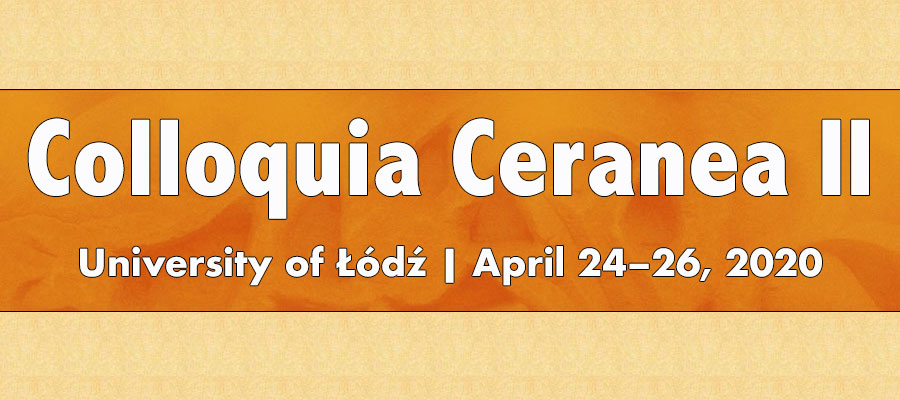Colloquia Ceranea II, University of Łódź, April 24–26, 2020
Submissions are invited to participate in the international scholarly conference Colloquia Ceranea II, which will be held April 24–26, 2020 at The Waldemar Ceran Research Centre for the History and Culture of the Mediterranean Area and South-East Europe “Ceraneum”, University of Łódź, Poland.
The conference is targeted at scholars who study the history and culture of the Mediterranean (the Greco-Roman world, the Byzantine Empire, the Slavic world, the Balkans), the Middle East, and the Caucasus over the period from Antiquity to the Early Modern Times.
The conference will focus particularly on the following topics:
- Food and Medicine from Antiquity to the Early Modern Period
- Polemical Literature in Byzantium and Slavia Orthodoxa
- Realia and Imagination Byzantine Rhetorical Texts
- An Ethnic and Religious Potpourri – the Eastern Border of the Byzantine Empire (4th-11th Century). Policy, Religion, Culture
- Translatorica Mediaevalia. The Role of Translations in the Culture of South-East Europe and the Mediterranean
- State Administration in the Early Byzantine Period (AD 284–641)
- Rivalry and Cooperation in the Medieval Balkans and the Mediterranean
Four plenary lectures will be delivered. Our keynote speakers are:
- Prof. Albrecht Berger (Ludwig-Maximilians-Universität München)
- Prof. Ivan Biliarsky (Българска Академия на Науките)
- Prof. Philip van der Eijk (Humboldt-Universität zu Berlin)
- Prof. Marcello Garzaniti (Università degli Studi di Firenze)
Papers beyond the scope of the aforementionedsubject areas will also be accepted, especially if they are related to:
- material culture and everyday life,
- historical and political geography,
- peace and war studies,
- society, mores and social norms,
- education,
- language,
- art and visual culture,
- cultural unity and diversity, continuity and innovations,
- the history of the Church and religious movements,
- political culture and ideology,
- historiography and perception of the past from Antiquity to the present day,
- the state and its organization.
Submissions of proposals for a thematic group (or thematic groups) organised around one specific topic (i.e. thematic panels) are especially encouraged. Each panel will consist of a minimum of 3 speakers. Individual submissions are also welcome.
